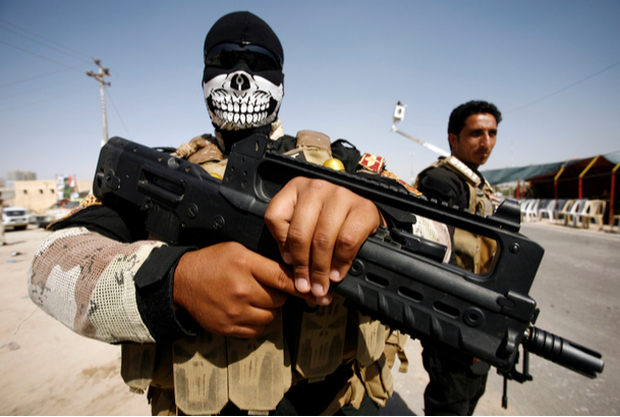“Iraq after ISIS” is the catchphrase of the day in political and media circles. It assumes a new phase in Iraqi history, for which no terms have been agreed, offering no vision or guarantees that terrorism will not reappear.
Before Iraq can rebuild newly liberated provinces levelled during the fight against the Islamic State (ISIS), it must return inhabitants to their neighbourhoods and establish and safely guard the rule of law.
Iraqi Prime Minister Haider al- Abadi’s government has amplified promises of grand reconstruction plans but, in a pattern consistent with the past, it has under-delivered.
Najiba Najib, a member of Iraq’s Parliamentary Investment Committee, has stated that foreign investors would assist the government by granting loans to fund investment plans and housing projects. The foreign firms Najib mentioned have not been named publicly. This lack of detail suggests that either no plan exists or its goals are unattainable.
Before entering politics, Hiti cooperated with US forces as a Sahwa member in 2005, fighting al-Qaeda targets. Al-Qaeda was expunged from Iraq’s western territories but those who secured the victory were betrayed. Promises by the United States and former Iraqi Prime Minister Nuri al-Maliki faded and only a few were compensated with positions in power.
Hiti, a tribal chieftain from Hit, north-west of Ramadi, is considered the newest hope for Iraq, recently chosen to restore areas that no longer resemble cities. He is in a position to satisfy the desire of displacing Iraqis aching to return home but he lacks the experience needed to mend Iraq’s disintegrated north-western provinces.
A member of parliament from Ramadi, who spoke on condition of anonymity, said Hiti had received initial funding of $250 million. As of now there is no publicly accessible trail to indicate whether or how the money has been spent.
Also, no official executive body has been named to oversee the reconstruction phase.
The same MP sounded the alarm about new cycles of kidnappings and extortion. Hiti and those employed to assist in the effort “may either pocket the money or be targeted and forced to use reconstruction dollars to pay off ransoms,” he said.
Despite slow moves towards reconstruction, the politician said he believed Iraq after ISIS would step up the scramble for wealth and power. The government may well seize its moment and usher more Sunni businessmen into the political process to repair the image of the disintegrating state.
New US bases will slowly come into sight around liberated areas, as is emerging close to Rutba, which occupies a strategic corridor linking Amman to Baghdad.
As long as the likelihood of terror remains high, however, many view back-channel discussions of Iraq after ISIS as a trap door, behind which they will plead innocent when blamed for the rise of a new terrorist outfit.
Other than ingrained corruption, the twin obstacles of militiamen, united under the Popular Mobilisation Forces umbrella, and the status of territories seized by Kurdish forces may eclipse hopes for rebuilding provinces.
Many militias view themselves as the custodians of the Iraqi state, as liberators. Despite their having wrested control from terrorists, most feared is the type of power they will exercise while policing cities. The greatest fear, with less than a year until Iraq’s presidential elections, is the political seats many believe will be granted to gun-wielding militias.
“Abadi has been quiet this far,” said Ahmad al-Mahmoud from the Iraqi opposition group Foreign Relations Bureau of Iraq. “He just wants to survive the election phase, to step down from his position as the head of state.”
Mahmoud spoke of multiple wars occurring under the roof of one country. “It’s difficult to guarantee the end, which war exactly? The nation is fighting multiple and at times parallel battles. Islamic State is part and not the entire problem,” Mahmoud said in an interview.
Until the establishment can cure itself of these problems, Mosul’s political and religious fabric cannot be repaired, new schools cannot emerge nor can the feeling of safety. Those languishing in crumbling encampments on the outskirts of Mosul and elsewhere are unsure if anything will be different this time around.
Source: http://www.thearabweekly.com/Opinion/8405/Can-mishandling-reconstruction-fuel-a-fresh-Iraqi-insurgency?


 RSS Feed
RSS Feed